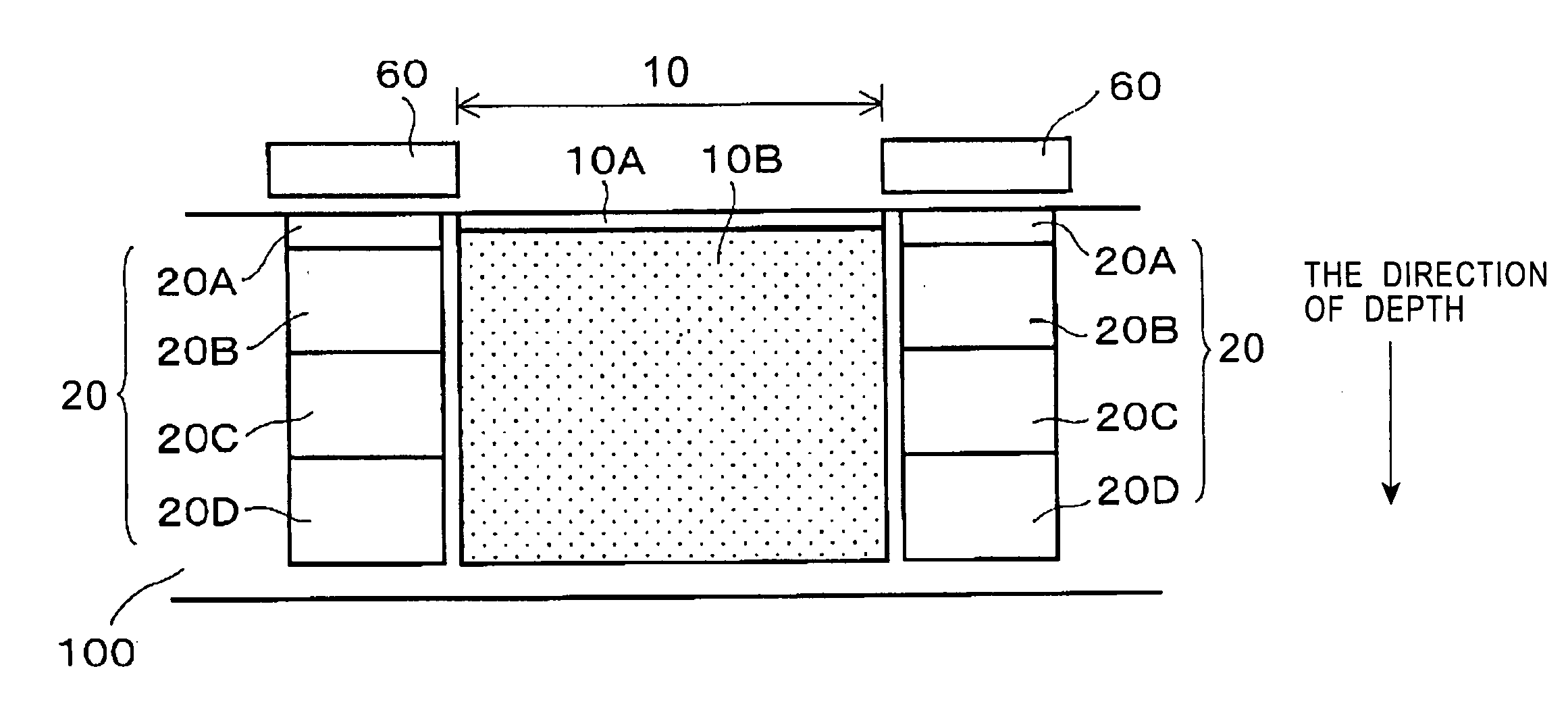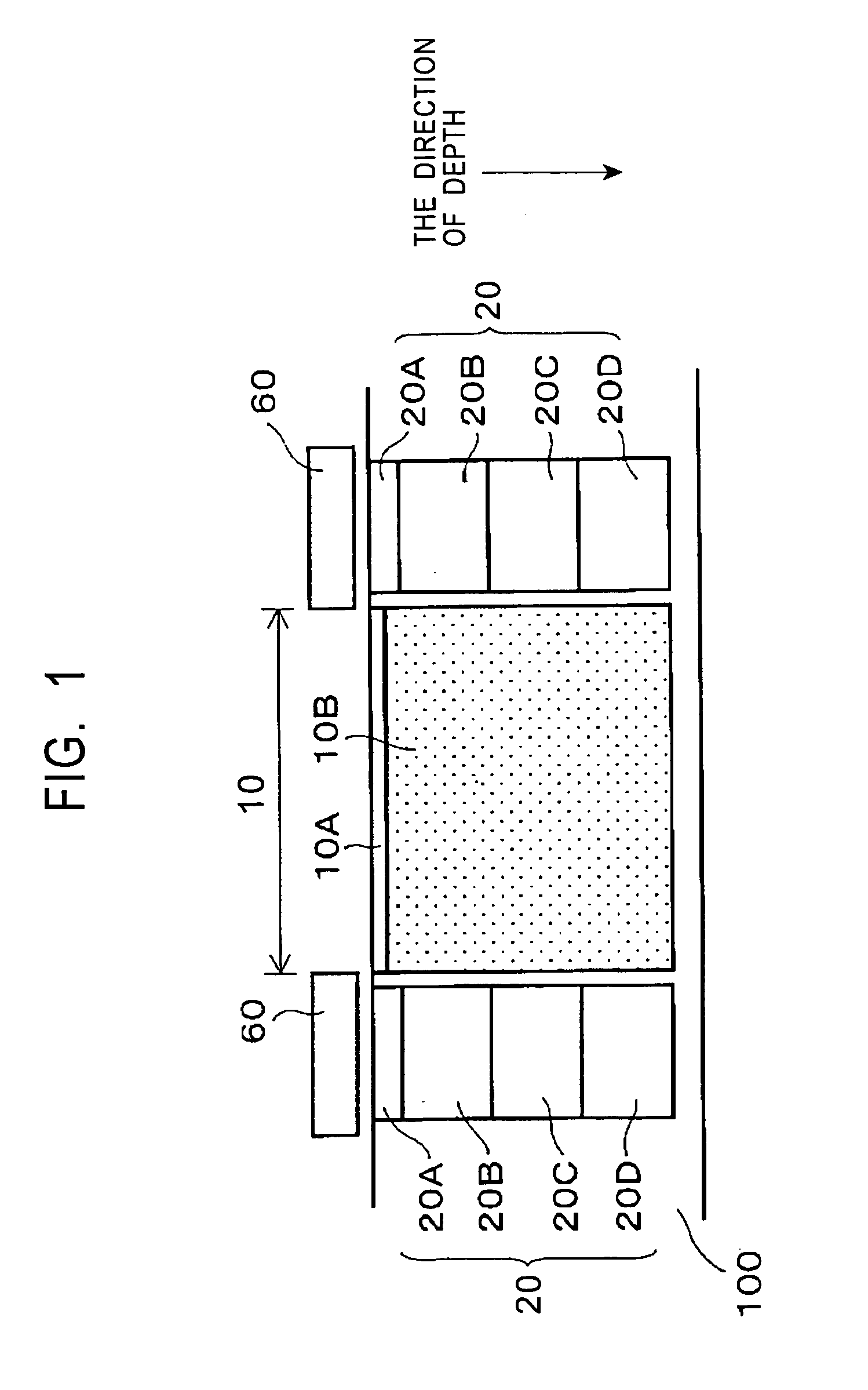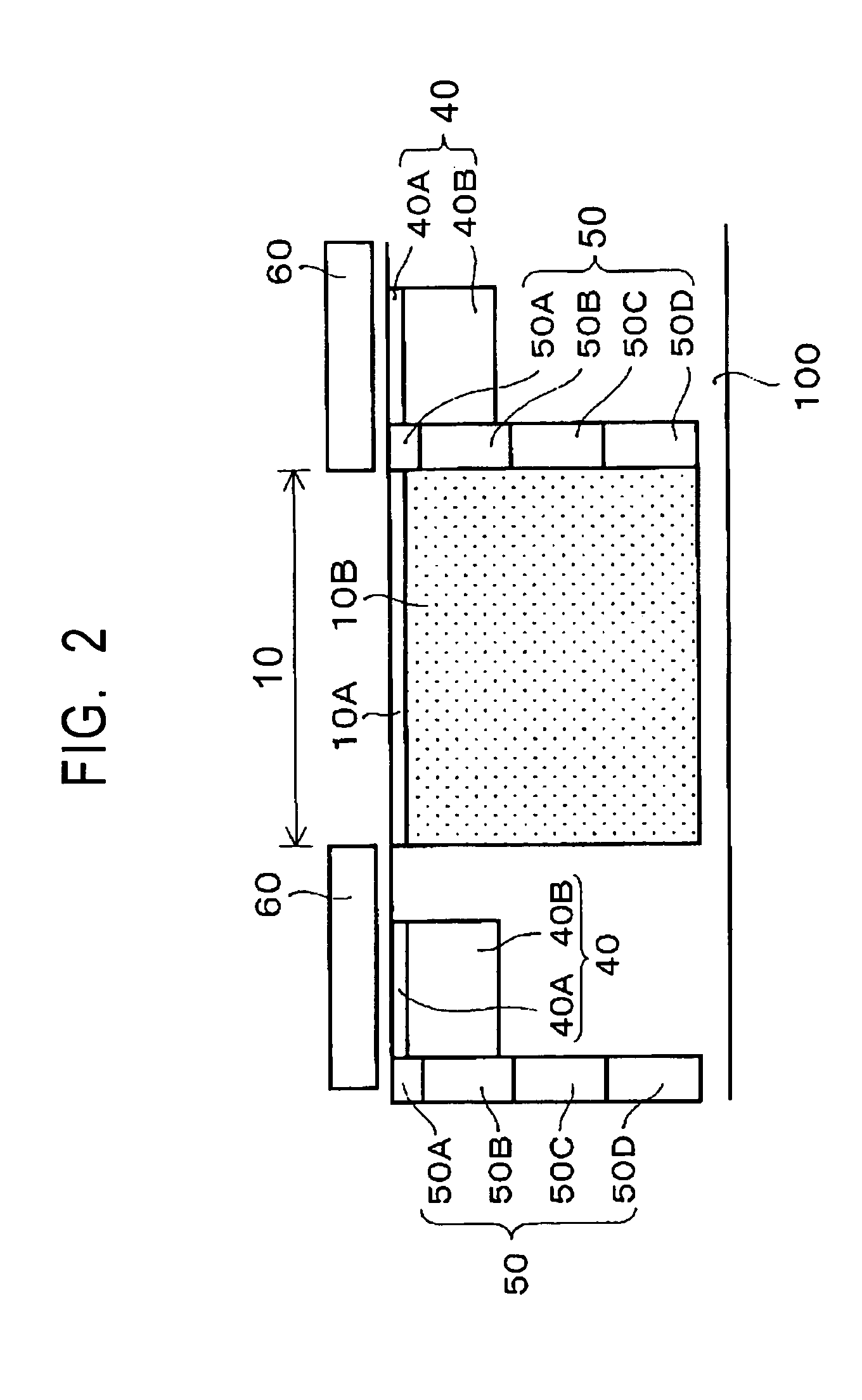Solid-state imaging device and method for manufacturing the same
a solid-state imaging and imaging device technology, applied in the direction of solid-state devices, transistors, radiation controlled devices, etc., can solve the problems of adverse smear phenomenon, ineffective reduction of smear components on the surface of substrates, and inability to effectively prevent smear, so as to prevent color mixing phenomenon, effective prevention of signal leakage between adjacent photosensors and between photosensors and transfer sections, and effective prevention of color mixing phenomenon
- Summary
- Abstract
- Description
- Claims
- Application Information
AI Technical Summary
Benefits of technology
Problems solved by technology
Method used
Image
Examples
Embodiment Construction
[0039] Embodiments of a solid-state imaging device and a method for manufacturing the same according to the present invention will be specifically described hereinafter.
[0040]FIGS. 1 and 2 are sectional views of a solid-state imaging device manufactured by the method according to an embodiment, FIG. 1 showing an embodiment of a channel stop section provided between photosensors along the vertical transfer direction, and FIG. 2 showing an embodiment of a channel stop section provided between the photosensors along the horizontal transfer direction. The entire structure of the solid-state imaging device is the same as that of the related art shown in FIG. 6, wherein FIG. 1 corresponds to the section taken along line A-A of FIG. 6 and FIG. 2 corresponds to the section taken along line B-B of FIG. 6.
[0041] Referring first to FIG. 1, a photodiode region constituting a light receiving section 10 of each photosensor includes a P+ type impurity region (hole storage region) 10A formed in t...
PUM
 Login to View More
Login to View More Abstract
Description
Claims
Application Information
 Login to View More
Login to View More - R&D
- Intellectual Property
- Life Sciences
- Materials
- Tech Scout
- Unparalleled Data Quality
- Higher Quality Content
- 60% Fewer Hallucinations
Browse by: Latest US Patents, China's latest patents, Technical Efficacy Thesaurus, Application Domain, Technology Topic, Popular Technical Reports.
© 2025 PatSnap. All rights reserved.Legal|Privacy policy|Modern Slavery Act Transparency Statement|Sitemap|About US| Contact US: help@patsnap.com



